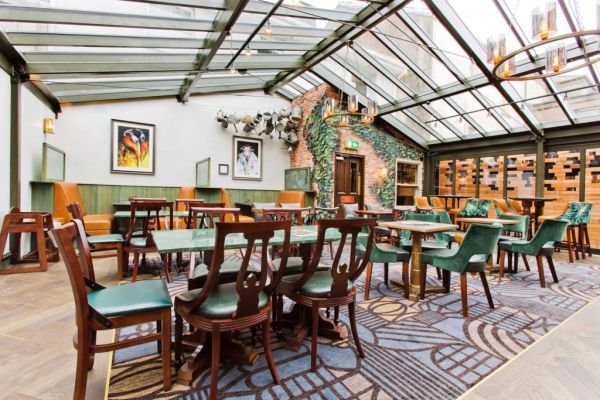The top hospitality groups in Britain generated year-on-year sales growth of 8.8% in December, according to the latest CGA RSM Hospitality Business Tracker.
This strong result ended a solid 2023 for managed pubs, bars and restaurants in the UK, which collectively achieved like-for-like growth in every month.
December’s figure is a sharp increase from 4.0% in November, and more than double the current rate of inflation in the UK, as measured by the Consumer Price Index.
‘Quieter Trading Months’
“December’s tracker numbers show the enduring appeal of pubs, bars and restaurants over the festive season,” said Karl Chessell, director of hospitality operators and food, EMEA, at CGA by NIQ.
“They are a welcome sign that pressure on consumers’ spending may be easing, and the extra revenue is vital to groups as we enter quieter trading months.”
London In Lead
For the 12th time in the last 13 months, the tracker shows that growth in London was higher than it was elsewhere.
Group sales within the M25 in December were 11.2% up on last year, compared to an 8.1% increase outside it.
‘Train Strikes’
“London’s pubs and restaurants emerge as clear winners when it comes to festive trade for 2023,” said Paul Newman, head of leisure and hospitality at RSM UK.
“In 2022, train strikes sucked demand out of the sector, and these like-for-like sales numbers are reflective of the first proper Christmas for operators post-Covid.
“Restaurants inside the M25 enjoyed like-for-like growth of 11.8%, with pubs not far behind, at 11.5%.”
‘Lower Footfall’
RSM has warned that ‘casualties’ look inevitable in hospitality in the coming months, as hikes in national living wages and business rates from April make more businesses ‘unviable’.
“A bumper Christmas doesn’t resolve ongoing challenges for the sector, particularly for smaller independent operators, as they struggle to cope with the growing cost of borrowing, energy bills, and ingredients,” said Newman.
“The first quarter is always a particularly acute time for the hospitality sector, with lower footfall, quarterly rent payments and higher VAT bills, which have already been blamed for the closure of several high-profile restaurants.”









